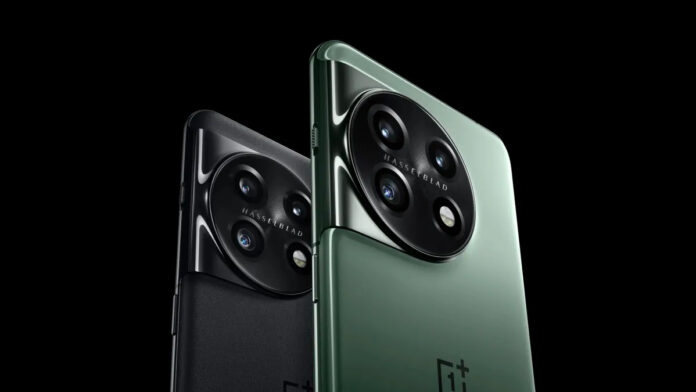Major smartphone launches are scheduled for February 2023 from companies including Samsung, Xiaomi, Realme, iQOO, Moto, and others.
We are into February now which means new smartphone launches are only going to pick up from here on out. This month looks quite packed with several high-profile launch events from companies like Samsung, OnePlus, Xiaomi, Vivo, POCO, iQOO, and Motorola. We take a look at some of the biggest upcoming smartphone launches in February 2023. Our list includes launches scheduled to take place globally and in India. If you’re looking to buy a new smartphone in 2023, you’ll have a lot of options to choose from soon. Let’s take a look at every phone that will be released this month.
Samsung Galaxy S23,Galaxy S23+, Galaxy S23 Ultra
The Samsung Galaxy S23 series includes the vanilla Galaxy S23, Galaxy S23+, and Galaxy S23 Ultra. It is set to launch on Wednesday, February 1st globally. All three devices are a minor step up from the outgoing Galaxy S22 series when looking at the specifications. The high point is the latest Qualcomm Snapdragon 8 Gen 2 SoC along with up to 12GB of RAM and 1TB of internal storage.
As for the cameras, the Galaxy S23 is said to pack a 50MP primary camera, a 12MP ultrawide angle sensor, and a 10MP telephoto sensor. There is a 12MP snapper on the front for selfies and video chats. A similar configuration is expected on the Plus variant as well, while the Galaxy S23 Ultra gets a quad camera setup on the back with a 200MP Samsung HP2 main camera, a 12MP ultra-wide camera, and two 10MP telephoto sensors with support for 3x and 10x optical zoom, respectively. Other features on the phones include OneUI 5.1, which runs on Android 13, 5G, 4G LTE, Wi-Fi 6E, an ultrasonic in-display fingerprint sensor; a 3,900mAh battery with 25W fast charging on the Galaxy S23, a 4,700mAh battery on the Galaxy S23+ and a 5,000mAh battery on the S23 Ultra.
OnePlus 11
The OnePlus 11 has a 6.7-inch QHD+ E4 AMOLED LTPO 3.0 panel with a 120Hz refresh rate, a quad HD resolution, a punch-hole cutout for the front camera, and HDR10+ support. The handset is powered by the Qualcomm Snapdragon 8 Gen2 SoC paired with Adreno GPU, up to 16GB LPDDR5 RAM, and 512GB UFS 4.0 storage. The OnePlus 11 has three cameras on the back including a 50MP Sony IMX890 main sensor, a 48MP ultra-wide-angle lens, and a 32MP 2x telephoto camera. There is a 16MP snapper on the front for selfies and video chats. The handset is set to pack a 5,000mAh battery with 100W fast charging support, an in-display fingerprint sensor, an IP54 rating, and an alert slider.
OnePlus 11R
OnePlus 11R is expected to feature a 6.7-inch FHD+ curved AMOLED panel with a 120Hz refresh rate and a punch-hole cutout in the centre for the selfie camera. The smartphone will be powered by the Snapdragon 8+ Gen 1 processor paired with up to 16GB RAM and 256GB storage. Moving to the cameras, the handset is expected to get a triple camera setup on the back, with a 50MP primary camera, a 12MP secondary lens, and a 2MP depth sensor. On the front, it will get a 16MP sensor for selfies and video chats. The phone will boot the latest Android 13 with the OxygenOS 13.1 build-out of the box. Other expected features on the handset include an alert slider, an IR blaster, WiFi6, Bluetooth 5.3, Dolby Atmos support, an in-display fingerprint sensor, dual 5G, 4G, VoLTE connectivity, NFC and a 5,000mAh battery with support for 100W fast charging.
Realme GT Neo 5
The POCO X5 Pro will likely come with a 6.67-inch FHD+ OLED panel with up to 120Hz adaptive refresh rate, along with Dolby Vision and HDR10+ support. The handset will be powered by a Qualcomm Snapdragon 778G SoC paired with up to 12GB of RAM and 256GB of internal storage. As for the cameras, the X5 Pro will likely sport a triple rear camera setup consisting of a 108MP main camera, an 8MP ultra-wide sensor, and a 2MP macro sensor. For selfies, there will be a 16MP camera on the front. The phone will draw its power from a 5,000mAh battery with 67W fast charging support, and pack features like dual-band Wi-Fi, dual 5G support, a side-mounted fingerprint sensor, and an IR blaster.
Vivo X90, X90 Pro
The Vivo X90 series will be launched this month in two SKUs, the vanilla Vivo X90 and the X90 Pro. Both devices sport a 6.78-inch AMOLED screen with a 1.5K resolution on the vanilla model and a 2K panel on the Pro model, along with a punch-hole cutout, and a 120Hz refresh rate. All phones in the Vivo X90 series are said to be powered by the new MediaTek Dimensity 9200 chipset paired with up to 12GB LPDDR5 RAM, and 512GB UFS 4.0 storage.
In the camera department, the Vivo X90 will come equipped with triple cameras on the back, including a 50MP IMX866v primary sensor, a 12MP portrait sensor with 2x optical zoom, and a 12MP ultrawide sensor. The X90 Pro will pack a 50MP IMX866 primary sensor, a 50MP portrait sensor with 2x optical zoom, and a 12MP ultrawide sensor. Both models get a 32MP front camera for taking selfies and making video calls. Other features of the phone include a 4,810mAh/ 4,870mAh battery with 120W wired fast charging support, 5G, Wi-Fi 6, Bluetooth 5.2, an in-display fingerprint sensor, and stereo speakers.
Xiaomi 13, 13 Pro
The Xiaomi 13 series is also set to debut in the Global markets this month, while the Indian launch might happen by March. The series consists of two models, the vanilla Xiaomi 13 and the Xiaomi 13 Pro. The Xiaomi 13 gets a 6.36-inch E6 AMOLED FHD+ flat display with a 120Hz refresh rate, and razor-sharp bezels, while the Pro model sports a larger 6.73-inch E6 AMOLED Quad HD+ curved screen. The handsets have been confirmed to be powered by the Qualcomm Snapdragon 8 Gen 2 SoC, with up to 12GB LPDDR5X RAM and up to 512GB of UFS4.0 internal storage.
On the optics side, the Xiaomi 13 series is expected to come with a 32-megapixel front camera. The vanilla model will have a triple camera setup on the rear with a 50-megapixel main sensor, a 12-megapixel ultra-wide lens, and a 10-megapixel telephoto sensor, while the Pro model packs a 50-megapixel main sensor, along with a 50-megapixel ultra-wide lens and a 50-megapixel telephoto camera. The handsets will house a 4,500mAh & 4,820mAh battery with 67W or 120W fast charging, 50W fast wireless charging, and 10W reverse wireless charging.
Samsung Galaxy M54 5G
According to reports, the Samsung Galaxy M54 5G will feature a 6.67-inch FHD+ AMOLED display with a 90Hz refresh rate along with a hole-punch for the selfie camera. In terms of optics, the phone may sport a triple rear camera setup consisting of a 64MP primary camera, an 8MP ultra-wide angle lens, and a 5MP macro shooter. It is also likely to feature a 32MP selfie camera. The handset may house a massive 6,000mAh battery with 25W fast charging support.
iQOO Neo 7
The iQOO Neo 7 will sport a 6.78-inch Full-HD+ AMOLED display with a 120Hz refresh rate. It will be India’s first phone with the MediaTek Dimensity 8200 SoC that will be paired with up to 12GB of RAM and 256GB internal storage. In terms of optics, it will likely come equipped with a triple rear camera setup consisting of a 64MP primary camera and two 2MP sensors. It will feature a 16MP for selfies and video calls on the front. The Neo 7 is expected to be juiced by a massive 5,000mAh battery with 120W fast charging support.
Moto Edge 40 Pro
The Moto Edge 40 Pro will feature a 6.7-inch OLED display that offers a Full HD+ resolution of 1080 x 2400 pixels, a 165Hz refresh rate, 10-bit colours, and HDR10 support. The handset will be powered by the Qualcomm Snapdragon 8 Gen 2 SoC, along with up to 18GB LPDDR5X RAM and up to 512GB of UFS4.0 internal storage. The smartphone will include three cameras on the back: a 50-megapixel main sensor, a 50-megapixel ultra-wide angle lens, and a 12-megapixel telephoto shooter. The front of the phone will have a 60-megapixel selfie camera. It will be powered by a 5,000mAh battery and support 68W or a 4,600mAh battery with 125W rapid wired charging support.






